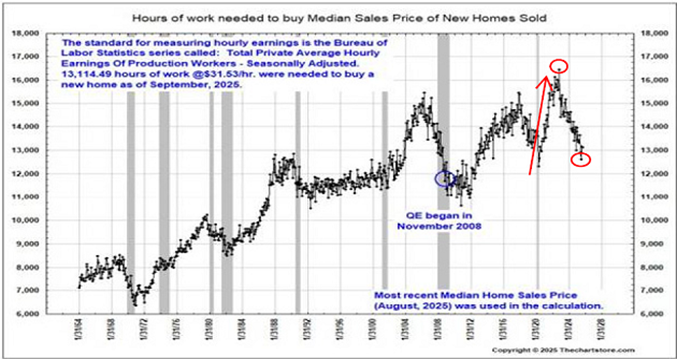About That Currency In Your Pocket
- cornerstoneams
- Aug 3, 2020
- 4 min read
CAMS Weekly View from the Corner – Week ending 7/31/2020
August 3, 2020
We shared a Weekly View several weeks ago entitled “The FED Invites the Greater Fool Market Environment”. The essence of the edition was that when our central bank prints massive amounts of money the process has downstream ramifications that rarely get attention.
An additional follow-on is the impact on the value of the currency as it gets massively printed to support various markets and/or government programs. With the Covid-19 Virus and the follow-on lock down policies numerous programs were initiated from all levels of government.
Not only do said programs remain but more are being considered/discussed within various branches of government. These programs – both previous and current considerations – are and will be funded with debt and ultimately printed money.
This leads to a logical conclusion that the value of the currency goes lower. This has kicked into trend as depicted below.

Click For Larger View: http://schrts.co/EGXSnUUU
The above is a one year chart of the U.S. Dollar index. In early March, with the onset of lock-downs, the currency was unsure via an initial drop then a spike. By mid-May a true downtrend began which is depicted by the red line.
The Dollar index is placing the dollar in comparison to other major world currencies which too have been vastly printed.
One way to interpret the Dollar Index market message, as viewed through the lens of currency markets; the U.S. is “winning” the printing/indebtedness award in the Covid-19 Virus era.
Sadly, in “winning” the U.S. currency is taking on meaningful and abrupt downside trend. This while Congress discusses even more programs – think indebtedness and ultimately, more money printing.
There is indebtedness, money printing and taxes – but the tax base is anything but growing, via lock-downs, which takes us back to the first two options to finance said programs.
Logical Rabbit Hole
The more lock-down the more need for government programs which invite the follow-on need for more indebtedness and follow-on money printing which invites an even lower valued currency as the tax base dwindles further. Given enough time, this leads to a logical economic death spiral via a currency crisis.
Historically, the U.S. has not experienced a full-blown currency crisis. Countries that do experience them see the citizenry at large decline into dire straits.
The currency is often taken for granted similar to a properly inflated football within a game of said sport. Flatten the ball and try to proceed with the game as expected and previously experienced. Not possible.
Currency debasements, on the back of seemingly endless “free money” government programs that are paid for with indebtedness and printed money will flatten the economic ball faster than most can imagine.
The follow-on impact, if leading to a currency crisis, will lead to social unrest that will make our recent unrest look tame. Simply put, a currency crisis should never even be flirted with.
Back to Markets
What can seem strange is when a currency comes into question stock markets can go higher on the concern. What?
If market participants become ever more concerned with the prospects of the currency they will get out of it like any other market that becomes a concern of falling lower. With this, they would rather own shares of a relatively viable corporation and in so doing bid up stock prices.
Simultaneously, they get exposure to companies or assets that can benefit from the follow-on inflationary expectations of a down trending currency. This offers two positives – less exposure to the currency on their own balance sheet and also exposure to positive upside of an inflationary concern.
The currency going lower adds yet another aspect of stock prices getting bid higher against a questionable economic backdrop.
This is not an overall positive for a nation’s economic health. In fact, counter-intuitively, it can speak to a problem developing and getting worse.
With this, stock prices going higher can be a symptom of an economic problem as you get deeper into the economic territory of in-debt/print-in-debt/print that we have walked into.
Yes it is getting more complicated
This is very reminiscent of post 2008/2009 Great Recession time-frame. Generally, stocks marched upward on the back of increased indebtedness and massive money printing with sub-par growth in the overall economy while the currency trended solidly lower.
Then, when a currency counter-trend would kick up stocks would incur downside.
Yet again, history is not repeating but certainly rhyming.
I wish you well…
Ken Reinhart
Director, Market Research & Portfolio Analysis
Portfolio Manager, CAMS Spectrum Portfolio
Footnote:
H&UP’s is a quick summation of a rating system for SPX9 (abbreviation encompassing 9 Sectors of the S&P 500 with 107 sub-groups within those 9 sectors) that quickly references the percentage that is deemed healthy and higher (H&UP). This comes from the proprietary “V-NN” ranking system that is composed of 4 ratings which are “V-H-N-or NN”. A “V” or an “H” is a positive or constructive rank for said sector or sub-group within the sectors.
This commentary is presented only to provide perspectives on investment strategies and opportunities. The material contains opinions of the author, which are subject to markets change without notice. Statements concerning financial market trends are based on current market conditions which fluctuate. References to specific securities and issuers are for descriptive purposes only and are not intended to be, and should not be interpreted as, recommendations to purchase or sell such securities. There is no guarantee that any investment strategy will work under all market conditions. Each investor should evaluate their ability to invest for the long-term, especially during periods of downturn in the market. PERFORMANCE IS NOT GUARANTEED AND LOSSES CAN OCCUR WITH ANY INVESTMENT STRATEGY.




Comments